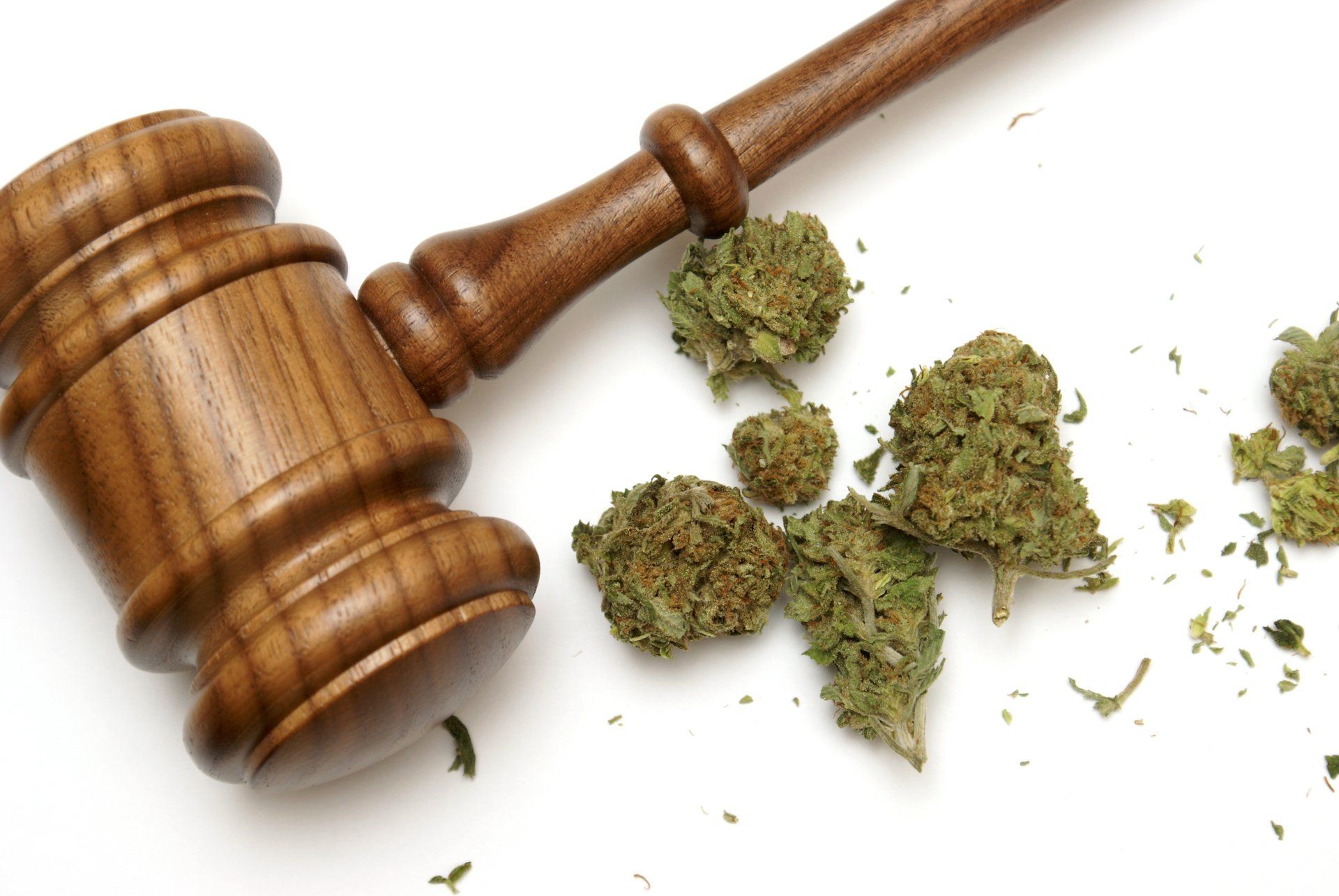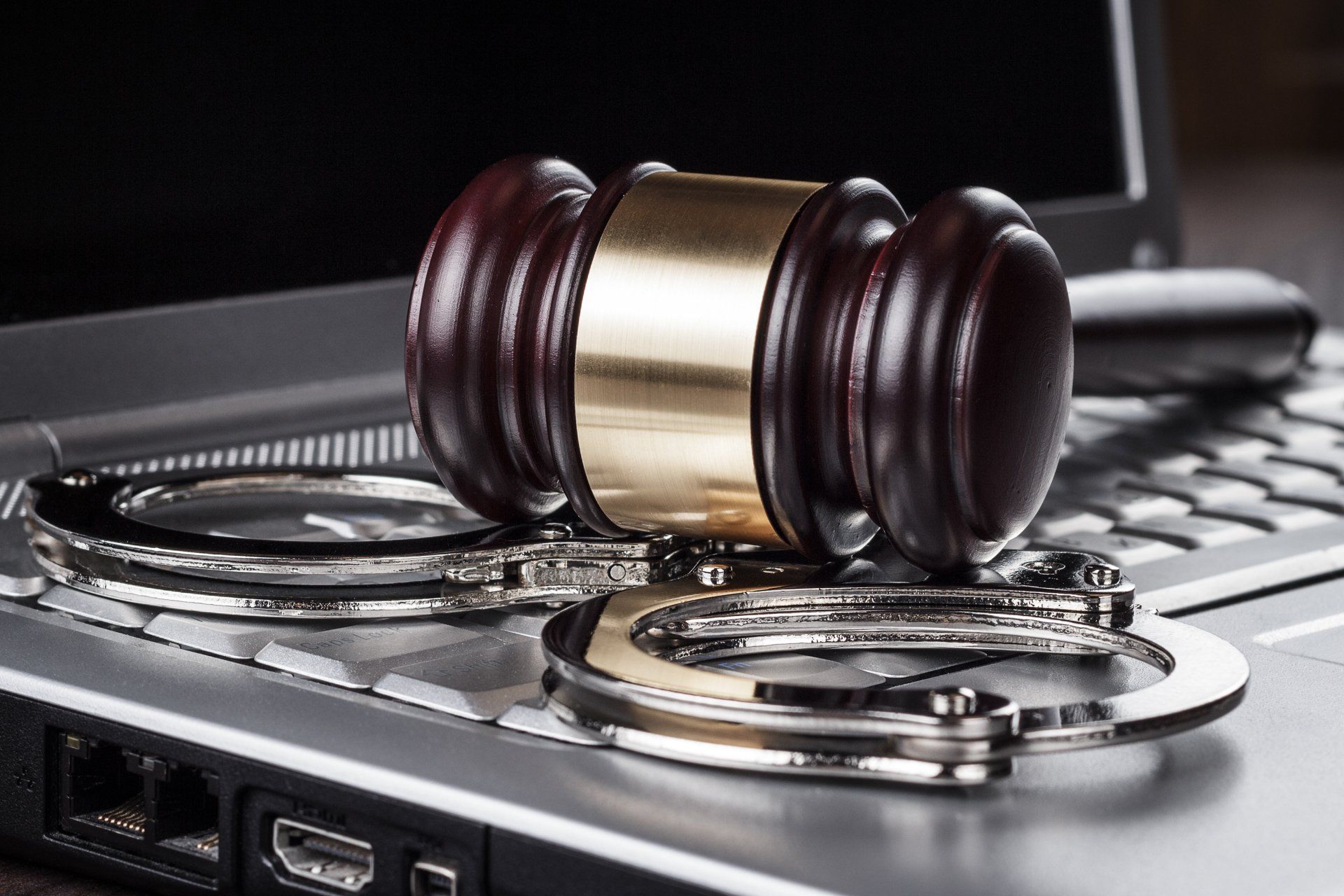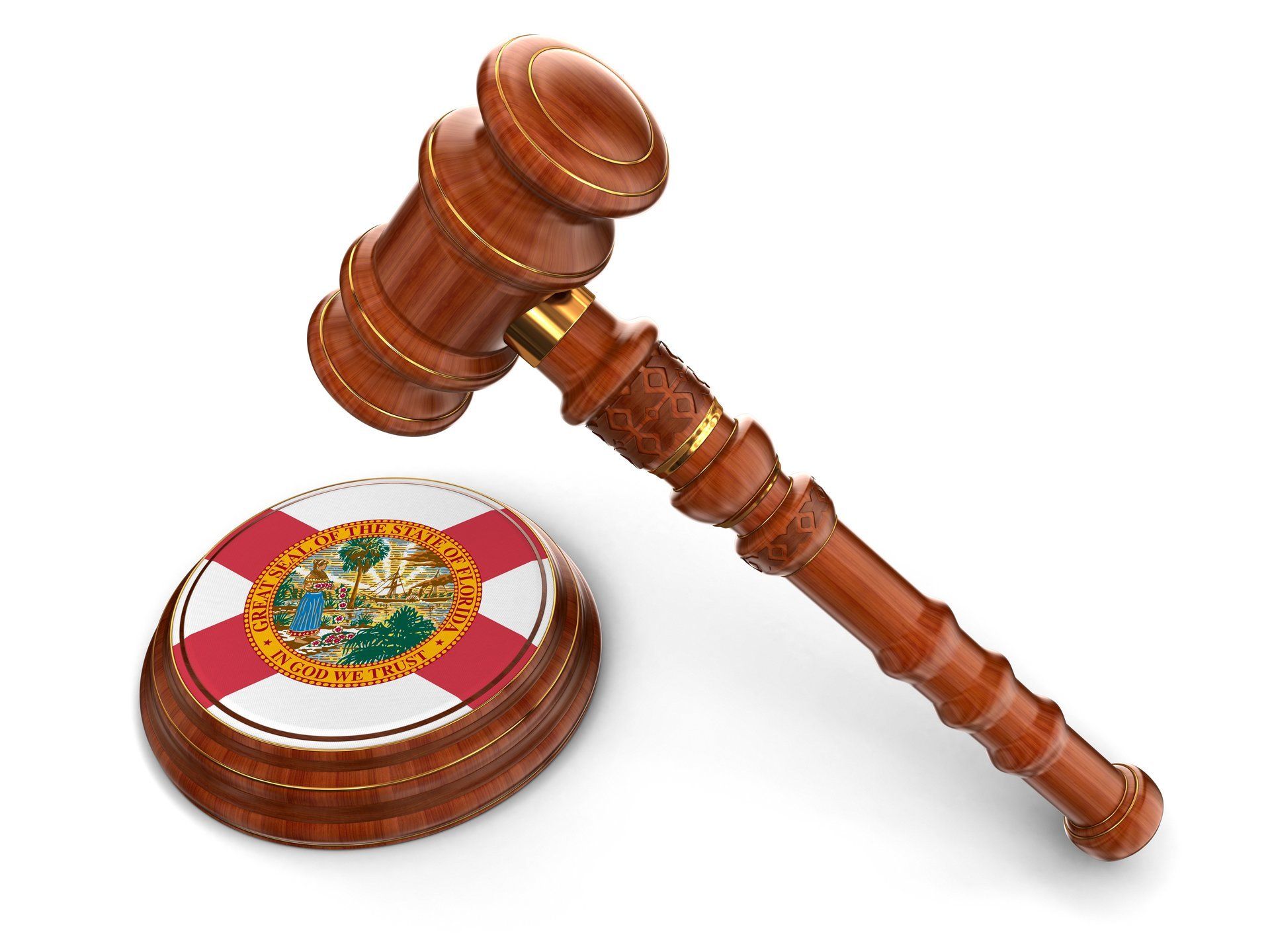Domestic Violence Injunctions in the Florida Courts
- By Antonio D. Quinn, Esq.
- •
- 24 Mar, 2020
- •
The Legal Standards and Procedures Regarding Domestic Violence Injunctions in Florida

In this article we seek to provide information regarding the operation of interpersonal violence injunctions in the civil context in the Florida Courts. Domestic violence involves violence or threats of violence by one household member against another which creates a reasonable concern that the petitioner is in imminent danger of physical harm. In order for a domestic violence injunction to be issued, both the respondent and the petitioner must be members of the same household or be family members. Except in the case of two people who have a child in common, the family or household members must either be currently residing together or have resided together in the past in order for a court to issue an injunction for protection against domestic violence. A parent has standing to file for a domestic violence injunction on behalf of a minor child.
As a criminal defense attorney, who also handles family law and domestic violence matters, I have represented clients in both seeking to obtain domestic violence injunctions from the Courts as well as those who have been served with domestic violence injunctions by another party and who are seeking to defend themselves against the allegations in the petition. The process in obtaining a domestic violence injunction begins with an aggrieved party going to the Circuit Court where either they or the respondent reside and filling out a packet at the domestic violence office at the Courthouse. A petitioner seeking a domestic violence injunction will be asked to put forth the reasons in writing for why they are seeking an injunction. After the domestic violence packet has been completed by the petitioner, the packet is then submitted to a domestic violence judge along with any supporting documentation of the allegations and that judge will decide on that same day whether or not to issue a temporary domestic violence injunction. A temporary domestic violence injunction is for a limited term, usually 15 days and will serve to prevent future acts of domestic violence and may award temporary exclusive use of the family home until a final hearing on the petition is heard by the court. In cases where children are living in the household, a temporary injunction may establish temporary timesharing for the time that the injunction is in place. A temporary injunction will also usually require the respondent to surrender any firearms to the Sheriff's Office pending further order of the court. In order for a temporary injunction to be issued, a petitioner must demonstrate to the Court that there is reasonable cause for the petitioner to believe that they are facing imminent and present danger from the respondent. Whether or not the domestic violence Judge decides to issue a temporary injunction, a Final Hearing is usually set to address the merits of the injunction within two weeks of the petitioner applying to the court for an injunction. If the presiding Judge denies the petition altogether then a final hearing will not be held. A Final Hearing in a domestic violence injunction case is akin to a mini bench trial where the Judge in the case is the ultimate arbiter of fact and law. At a domestic injunction hearing, the parties are permitted to introduce any evidence which supports their respective position including but not limited to documentary evidence and the introduction of testimony of witness's who have knowledge with regard to the allegations in the domestic violence petition. It is very important that a litigant obtain competent legal representation from a domestic violence lawyer to represent them at the Final Hearing. A domestic violence attorney should be well versed in the legal standards which are required to be evaluated by the judge at a final hearing and a domestic violence attorney can organize and present their client's case to the court in an effective manner which is simply not possible for most pro se litigants.
If the presiding Judge chooses to not issue a temporary injunction, then they are required by statute to provide the reason in writing for the denial. In some cases, the presiding Judge may choose to not issue a temporary injunction if they do not feel that there is a present and imminent danger to the Petitioner, but may still set the case for a final evidentiary hearing on the merits of the petition. Whether or not a temporary injunction is issued by the court, as long as a final hearing is scheduled on the petition, the respondent will need to be served with a copy of the petition and with a notice for the final hearing. Florida law requires that the Sheriff's office must serve the respondent with the petition and with the notice of hearing along with a copy of the temporary injunction in cases where a temporary injunction is issued. The use of a private process server is not permitted in cases of injunctions for protection against domestic violence. While the final hearing is required to be set by the court within 15 days of the filing of the petition, the court does have he power to grant a continuance to either party upon a showing of good cause such as a failure to effectuate service upon the respondent. The injunction will stay in place during the period of the continuance.
In order for a Circuit Court judge to issue a domestic violence injunction, the petitioner must demonstrate that they are the victim of domestic violence or that they are in imminent danger of becoming a victim of domestic violence. In determining whether a petitioner has demonstrated that they have reasonable cause to believe that they are in imminent danger of becoming a victim of domestic violence, the court will consider all relevant evidence including but not limited to the history between the respondent and the petitioner including threats, past physical abuse, harassment and stalking. The Court will evaluate whether the respondent has attempted or threatened to harm the petitioner or their family members as well as whether the respondent has threatened to kidnap or harm the petitioner's child or children. The Court is also required to evaluate if the respondent has injured or killed a family pet and whether or not they have threatened to use weapons such as guns or knives against the petitioner. The Court will also evaluate the criminal history of violence of the respondent in evaluating whether there is an imminent danger to the petitioner and they will evaluate whether the respondent has damaged property owned by the petitioner.
Fla. Stat. 741.28 defines domestic violence as any assault, aggravated assault, battery, aggravated battery, sexual assault, sexual battery, stalking, aggravated stalking, kidnapping, false imprisonment, or any criminal offense resulting in injury or death one household family member against another family member. Unlike in a regular family law case in Florida, there is no minimum residency requirement for seeking a domestic violence injunction through the Florida Courts. A petition for domestic violence may be filed in the jurisdiction where either the respondent or the petitioner currently resides even if that residence is only temporary. If a court determines that the petitioner has met their legal burden and issues a permanent domestic violence injunction then that injunction is valid and enforceable in all counties in the state of Florida. Under Fla. Stat. 790.233, possession of firearms by the respondent in a domestic violence injunction case is guilty of a first degree misdemeanor which is punishable by up to one year in jail. The Court has the power to enforce a violation of the terms of a domestic violence injunction through either civil or criminal contempt proceedings, however most cases of violations of a domestic violence injunction are prosecuted by the State Attorney's Office. A person who willfully disobeys a domestic violence injunction is guilty of a first degree misdemeanor. If a respondent commits 3 separate violations of an injunction, then the third violation is treated as a 3rd degree felony where the respondent will be facing a possible sentence of up to 5 years in Florida State prison.
Whether you are a victim of domestic violence who is seeking an injunction or whether you are a respondent who has been served with a temporary injunction or a notice to appear for a final hearing on a petition for domestic violence, it is absolutely imperative that you obtain legal representation by an experienced domestic violence attorney. Many times, a petitioner who genuinely is in imminent danger of becoming a victim of domestic violence will have their petition denied because they failed to obtain legal representation and did not adequately present their case to the Court in a manner which empowered the presiding judge to grant relief in the form of an injunction. By the same token, domestic violence injunctions are often sought by vindictive spouses or to gain a perceived "upper hand" in a dissolution of marriage or custody proceeding against persons who in fact have not presented themselves as a threat to the petitioner. I would say that in my practice, about 50% of the injunctions that I have seen being sought by parties are in fact frivolous and have been filed as the result of some ulterior motive on the part of the petitioner. Being the subject of a domestic violence injunction can all kinds of consequences to the respondent including but not limited to employment consequences, reputation damage and damage to the parent child relationship. If you have received a notice to appear for a domestic violence injunction hearing it is absolutely imperative to obtain the legal representation of an experiences, aggressive and effective domestic violence lawyer. Whether you are a petitioner or a respondent, it is crucial to be represented by a domestic violence attorney in order to make sure that your personal and legal rights are protected. My office has had extensive experience representing both petitioners as well as respondents in domestic violence court. For a free case evaluation of your domestic violence case, contact my law firm, Quinn Law, P.A. at (954) 463-0440.
As a criminal defense attorney, who also handles family law and domestic violence matters, I have represented clients in both seeking to obtain domestic violence injunctions from the Courts as well as those who have been served with domestic violence injunctions by another party and who are seeking to defend themselves against the allegations in the petition. The process in obtaining a domestic violence injunction begins with an aggrieved party going to the Circuit Court where either they or the respondent reside and filling out a packet at the domestic violence office at the Courthouse. A petitioner seeking a domestic violence injunction will be asked to put forth the reasons in writing for why they are seeking an injunction. After the domestic violence packet has been completed by the petitioner, the packet is then submitted to a domestic violence judge along with any supporting documentation of the allegations and that judge will decide on that same day whether or not to issue a temporary domestic violence injunction. A temporary domestic violence injunction is for a limited term, usually 15 days and will serve to prevent future acts of domestic violence and may award temporary exclusive use of the family home until a final hearing on the petition is heard by the court. In cases where children are living in the household, a temporary injunction may establish temporary timesharing for the time that the injunction is in place. A temporary injunction will also usually require the respondent to surrender any firearms to the Sheriff's Office pending further order of the court. In order for a temporary injunction to be issued, a petitioner must demonstrate to the Court that there is reasonable cause for the petitioner to believe that they are facing imminent and present danger from the respondent. Whether or not the domestic violence Judge decides to issue a temporary injunction, a Final Hearing is usually set to address the merits of the injunction within two weeks of the petitioner applying to the court for an injunction. If the presiding Judge denies the petition altogether then a final hearing will not be held. A Final Hearing in a domestic violence injunction case is akin to a mini bench trial where the Judge in the case is the ultimate arbiter of fact and law. At a domestic injunction hearing, the parties are permitted to introduce any evidence which supports their respective position including but not limited to documentary evidence and the introduction of testimony of witness's who have knowledge with regard to the allegations in the domestic violence petition. It is very important that a litigant obtain competent legal representation from a domestic violence lawyer to represent them at the Final Hearing. A domestic violence attorney should be well versed in the legal standards which are required to be evaluated by the judge at a final hearing and a domestic violence attorney can organize and present their client's case to the court in an effective manner which is simply not possible for most pro se litigants.
If the presiding Judge chooses to not issue a temporary injunction, then they are required by statute to provide the reason in writing for the denial. In some cases, the presiding Judge may choose to not issue a temporary injunction if they do not feel that there is a present and imminent danger to the Petitioner, but may still set the case for a final evidentiary hearing on the merits of the petition. Whether or not a temporary injunction is issued by the court, as long as a final hearing is scheduled on the petition, the respondent will need to be served with a copy of the petition and with a notice for the final hearing. Florida law requires that the Sheriff's office must serve the respondent with the petition and with the notice of hearing along with a copy of the temporary injunction in cases where a temporary injunction is issued. The use of a private process server is not permitted in cases of injunctions for protection against domestic violence. While the final hearing is required to be set by the court within 15 days of the filing of the petition, the court does have he power to grant a continuance to either party upon a showing of good cause such as a failure to effectuate service upon the respondent. The injunction will stay in place during the period of the continuance.
In order for a Circuit Court judge to issue a domestic violence injunction, the petitioner must demonstrate that they are the victim of domestic violence or that they are in imminent danger of becoming a victim of domestic violence. In determining whether a petitioner has demonstrated that they have reasonable cause to believe that they are in imminent danger of becoming a victim of domestic violence, the court will consider all relevant evidence including but not limited to the history between the respondent and the petitioner including threats, past physical abuse, harassment and stalking. The Court will evaluate whether the respondent has attempted or threatened to harm the petitioner or their family members as well as whether the respondent has threatened to kidnap or harm the petitioner's child or children. The Court is also required to evaluate if the respondent has injured or killed a family pet and whether or not they have threatened to use weapons such as guns or knives against the petitioner. The Court will also evaluate the criminal history of violence of the respondent in evaluating whether there is an imminent danger to the petitioner and they will evaluate whether the respondent has damaged property owned by the petitioner.
Fla. Stat. 741.28 defines domestic violence as any assault, aggravated assault, battery, aggravated battery, sexual assault, sexual battery, stalking, aggravated stalking, kidnapping, false imprisonment, or any criminal offense resulting in injury or death one household family member against another family member. Unlike in a regular family law case in Florida, there is no minimum residency requirement for seeking a domestic violence injunction through the Florida Courts. A petition for domestic violence may be filed in the jurisdiction where either the respondent or the petitioner currently resides even if that residence is only temporary. If a court determines that the petitioner has met their legal burden and issues a permanent domestic violence injunction then that injunction is valid and enforceable in all counties in the state of Florida. Under Fla. Stat. 790.233, possession of firearms by the respondent in a domestic violence injunction case is guilty of a first degree misdemeanor which is punishable by up to one year in jail. The Court has the power to enforce a violation of the terms of a domestic violence injunction through either civil or criminal contempt proceedings, however most cases of violations of a domestic violence injunction are prosecuted by the State Attorney's Office. A person who willfully disobeys a domestic violence injunction is guilty of a first degree misdemeanor. If a respondent commits 3 separate violations of an injunction, then the third violation is treated as a 3rd degree felony where the respondent will be facing a possible sentence of up to 5 years in Florida State prison.
Whether you are a victim of domestic violence who is seeking an injunction or whether you are a respondent who has been served with a temporary injunction or a notice to appear for a final hearing on a petition for domestic violence, it is absolutely imperative that you obtain legal representation by an experienced domestic violence attorney. Many times, a petitioner who genuinely is in imminent danger of becoming a victim of domestic violence will have their petition denied because they failed to obtain legal representation and did not adequately present their case to the Court in a manner which empowered the presiding judge to grant relief in the form of an injunction. By the same token, domestic violence injunctions are often sought by vindictive spouses or to gain a perceived "upper hand" in a dissolution of marriage or custody proceeding against persons who in fact have not presented themselves as a threat to the petitioner. I would say that in my practice, about 50% of the injunctions that I have seen being sought by parties are in fact frivolous and have been filed as the result of some ulterior motive on the part of the petitioner. Being the subject of a domestic violence injunction can all kinds of consequences to the respondent including but not limited to employment consequences, reputation damage and damage to the parent child relationship. If you have received a notice to appear for a domestic violence injunction hearing it is absolutely imperative to obtain the legal representation of an experiences, aggressive and effective domestic violence lawyer. Whether you are a petitioner or a respondent, it is crucial to be represented by a domestic violence attorney in order to make sure that your personal and legal rights are protected. My office has had extensive experience representing both petitioners as well as respondents in domestic violence court. For a free case evaluation of your domestic violence case, contact my law firm, Quinn Law, P.A. at (954) 463-0440.




